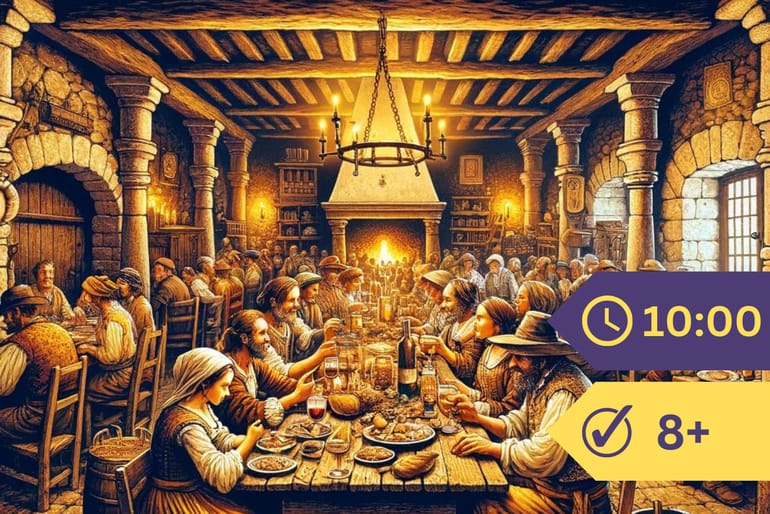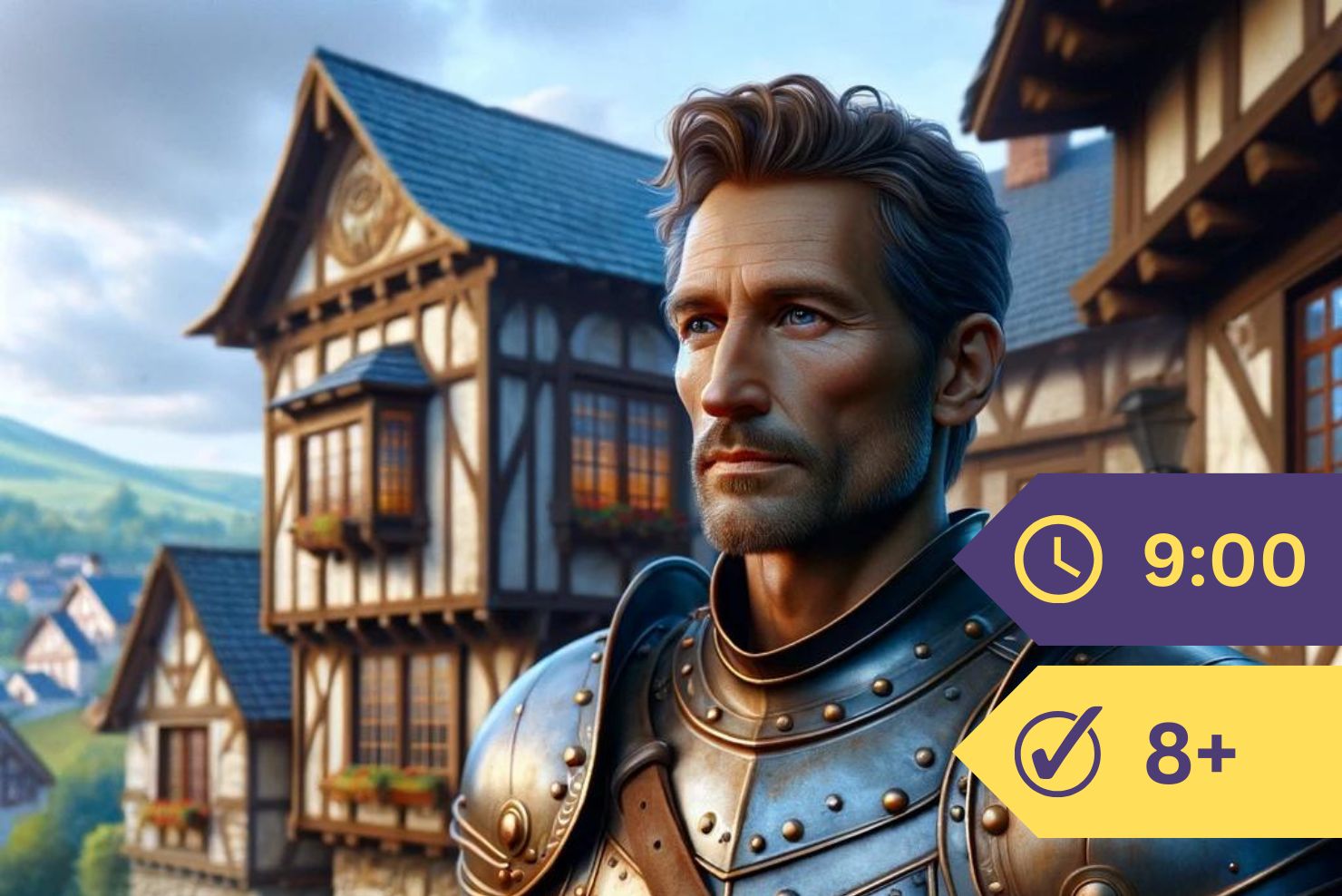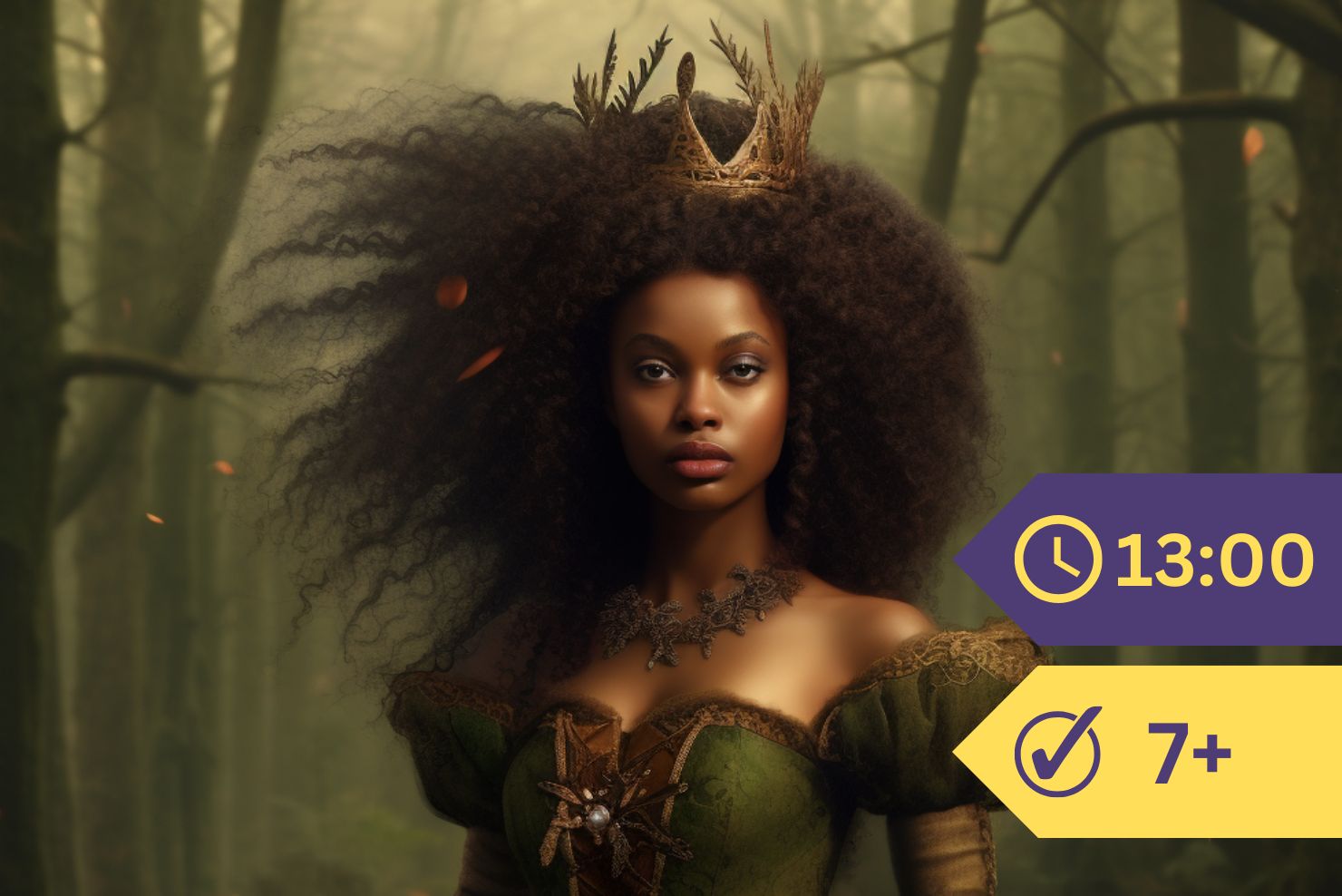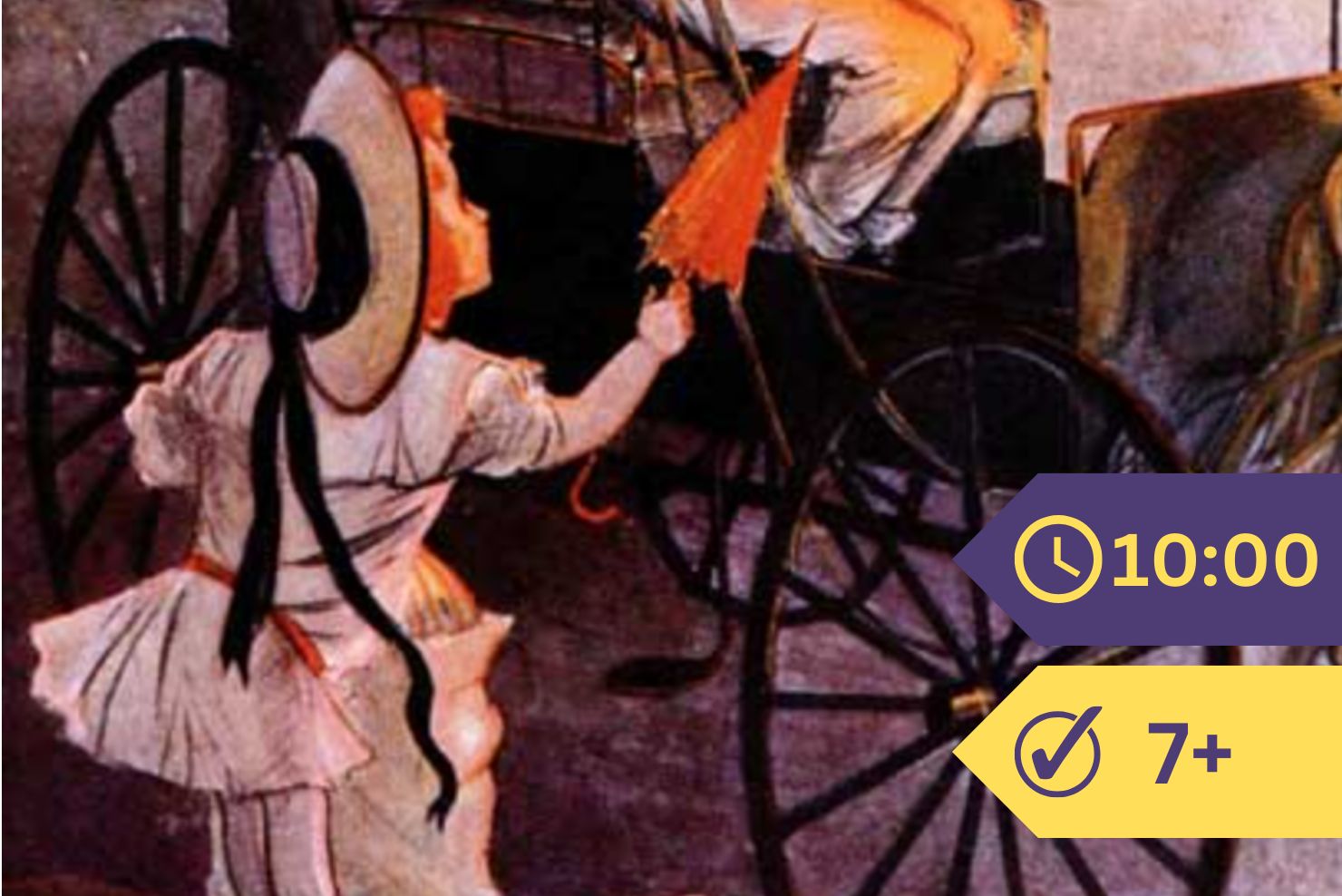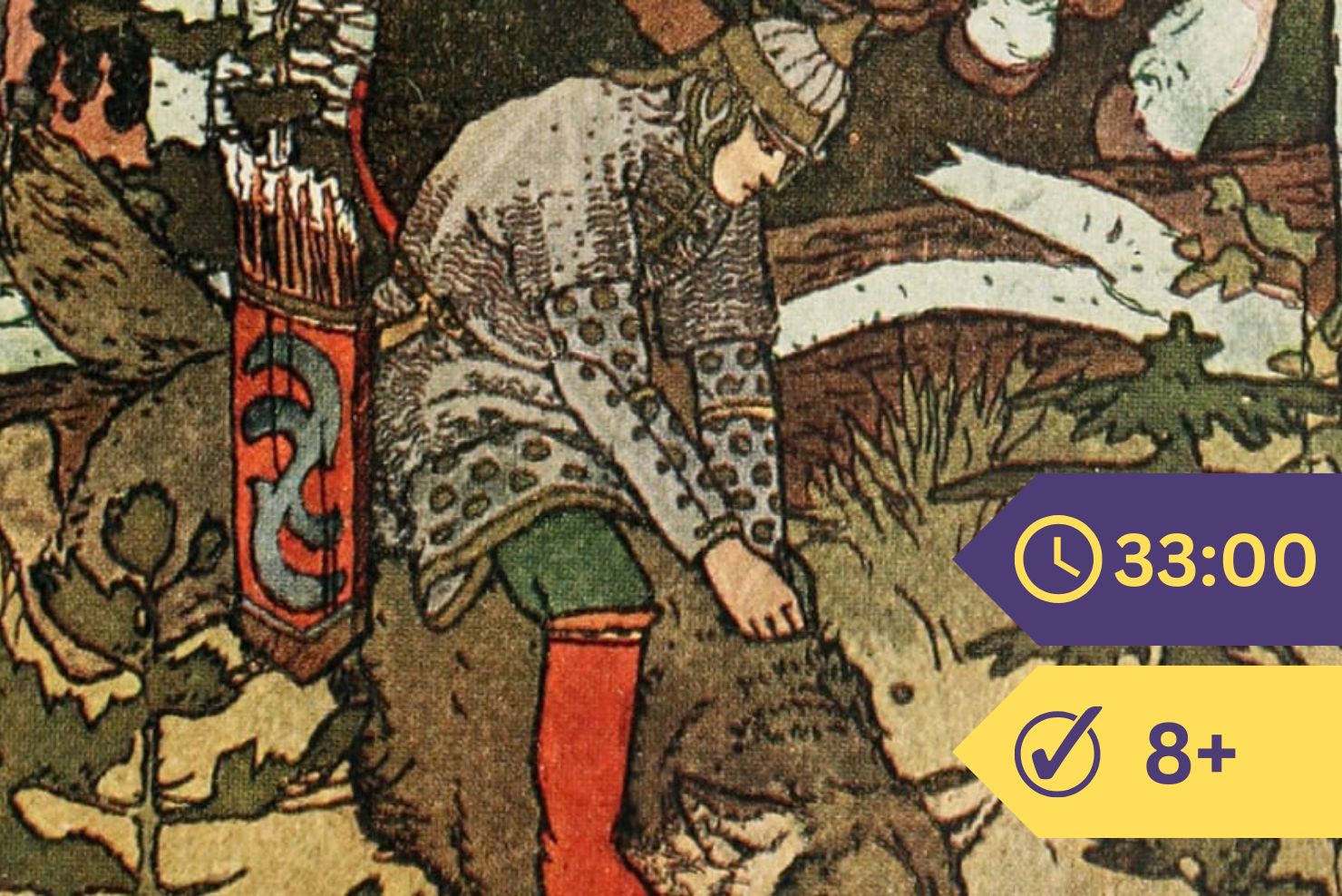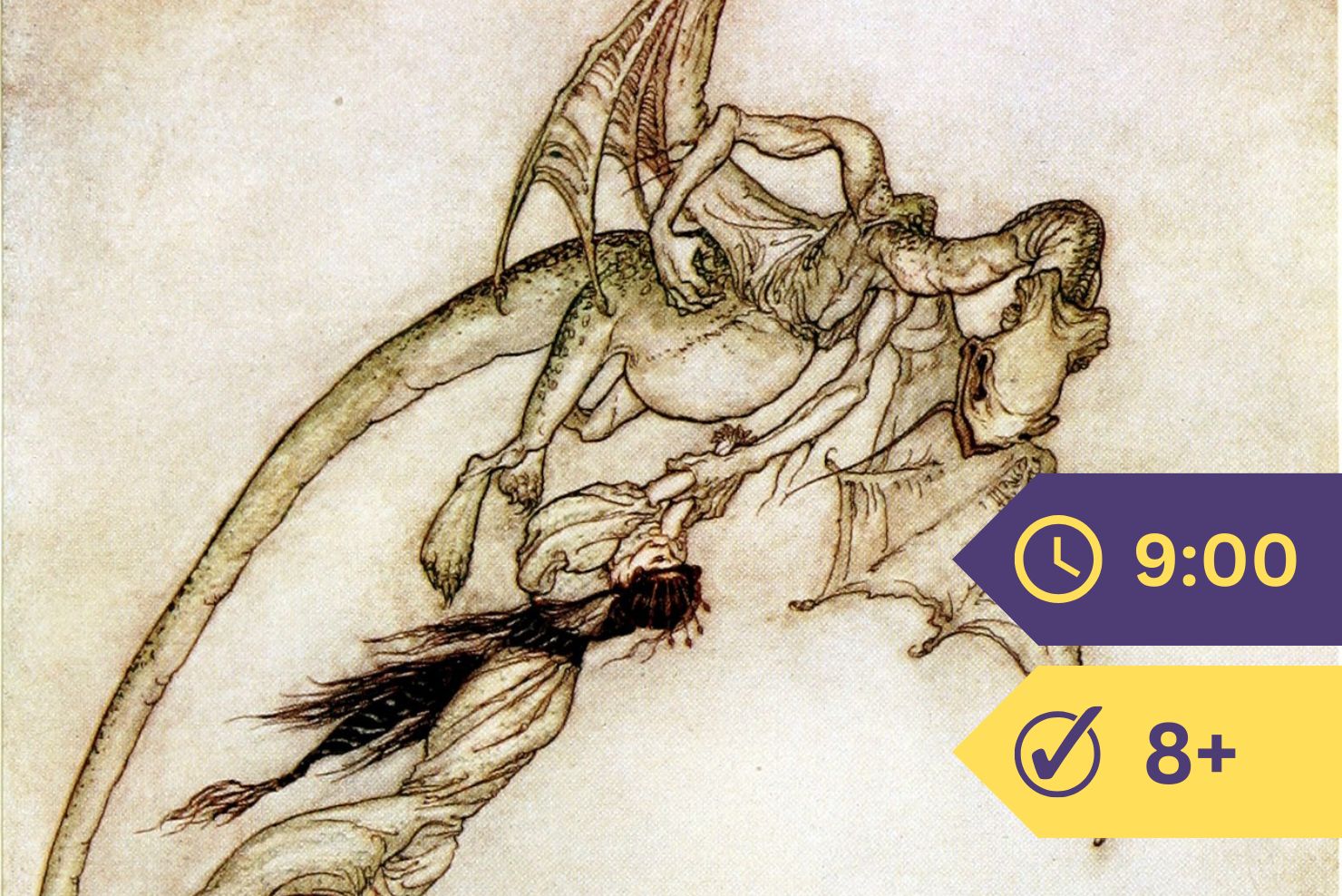Sancho gave ear to what he heard with no small grief of mind, seeing that all hopes of his earldom vanished away like smoke, and the fair Princess Micomicona was turned into Dorothea, whilst his master was sound asleep, careless of all that happened. Dorothea could not believe that the happiness she enjoyed was not a dream. Cardenio and Lucinda were of a similar mind, and Don Fernando was truly thankful that he was free from the dangerous path he had taken, which must have ended in loss of all honour and credit.
In a word, all were contented and happy. The curate, like a man of sense, congratulated every one on his good fortune; but she that kept greatest jubilee and joy was the hostess, because Cardenio and the curate had promised to pay all the damages done by Don Quixote.
Only Sancho, as has been said, was unhappy and sorrowful. And thus he went with a melancholy face to his master, who was then just awaking, and said: “Your worship, Sir Knight of the Rueful Countenance, may well sleep on as long as you please, without troubling yourself to kill any giant, or restore to the princess her kingdom, for all that is done and finished already.”
“That I well believe,” replied Don Quixote, “for I have had the most monstrous and terrible battle with that giant that ever I had all the days of my life; and yet with one back stroke, swish, I tumbled his head to the ground, and his blood gushed forth, so that streams of it ran along the earth as if it had been water.”
“As if it had been red wine, your worship might have said,” replied Sancho, “for I would have you know, if you do not know already, that the dead giant is no other than a ruined wine-bag, and the blood six-and-twenty gallons of red wine.”
“What sayest thou, madman?” cried Don Quixote. “Art thou in thy right wits?”
“Get up, sir,” said Sancho, “and you shall see yourself the fine piece of work you have done, and what we have to pay. You shall behold the queen turned into a private lady, called Dorothea, with many other things that may well astonish you.”
“I should marvel at nothing,” replied Don Quixote, “for if thou rememberest right, I told thee, the other time that we were here, how all that happened here was done by enchantment, and it would be no wonder if it were the same now.”
“I should believe it all,” replied Sancho, “if my tossing in the blanket had been a thing of that sort. Only it was not so, but very real and certain. And I saw the innkeeper, who is here to this day, hold one end of the blanket and toss me up to the sky with very good grace and strength, and as much mirth as muscle. And where it comes to knowing persons, I hold, though I may be a simpleton and a sinner, that there is no enchantment, but only bruising and bad luck.”
“Well,” cried Don Quixote, “time will show; but give me my clothes, for I would see these wonders that thou speakest of for myself.”
Sancho gave him his clothes, and, whilst he was making him ready, the curate told Don Fernando and the rest, of Don Quixote’s mad pranks, and the plan he had used to get him away from the Brown Mountains, where he imagined he was exiled through the disdain of his lady.
The curate told them further, that since the good fortune of the Lady Dorothea prevented them carrying out their scheme, they must invent some other way of taking him home to his village.
Cardenio offered to continue the adventure, and let Luanda take Dorothea’s part.
“No,” cried Don Fernando. “It shall not be so, for I will have Dorothea herself carry out her plan, and if the good knight’s home is not far from here, I shall be very glad to help in his cure.”
“It is not more than two days’ journey,” said the curate.
“Even if it were more,” replied Don Fernando, “I should be happy to make the journey in so good a cause.”
At this moment Don Quixote sallied out, completely armed with Mambrino’s helmet, which had a great hole in it, on his head, his shield on his arm, and leaning on his lance. His grotesque appearance amazed Don Fernando and his companions very much, who wondered at his gaunt face so withered and yellow, the strangeness of his arms, and his grave manner of proceeding.
All stood silent to see what he would do, whilst the knight, casting his eyes on the beautiful Dorothea, with great gravity and calmness spoke as follows: “I am informed, beautiful lady, by this my squire, that your greatness has come to an end, and your condition is destroyed. For, instead of being a queen and a mighty princess, you are now become a private damsel. If this has been done by the special order of that sage magician, the king your father, because he dreaded that I could not give you all necessary help, I say that he does not know half his art, and has never understood the histories of knightly adventures. For if he had read them with the attention that I have, he would have found how many knights of less fame than myself have ended far more desperate adventures than this, for it is no great matter to kill a giant, be he ever so proud. For in truth it is not so many hours since I myself fought with one; but I will be silent, lest they tell me I lie. Time, the detecter of all things, will disclose it when we least expect.”
“Thou foughtest with two wine-bags, not with a giant,” cried the innkeeper.
Don Fernando told him to be silent and not to interrupt Don Quixote, who continued his speech thus: “In fine, I say, high and disinherited lady, do not trouble if your father has made this change in you, for there is no peril so great on earth but my sword shall open a way through it, and by overthrowing your enemies’ head to the ground I shall set your crown on your own head within a few days.”
Don Quixote said no more, but waited for the princess’s answer. She knowing Don Fernando’s wish that she should continue to carry out their plan, answered with a good grace and pleasant manner, saying: “Whosoever informed you, valorous Knight of the Rueful Countenance, that I have altered and transformed my being, hath not told you the truth, for I am the very same to-day as I was yesterday. True it is that my fortunes have somewhat changed, and given me more than I hoped for or could wish for, but for all that I have not ceased to be what I was before, and I still hope to have the aid of your valorous and invincible arm. Therefore, good my lord, restore to my father his honour, and believe him to be both wise and sagacious, for by his magic he has found me a remedy for all my misfortunes. For I believe that had it not been for you, I should never have attained the happiness I now enjoy, and that I speak the truth these good gentlemen will bear witness. All that is now wanted is that to-morrow morning we set out on our journey. As for the conclusion of the good success I hourly expect, that I leave to the valour of your invincible arm.”
Thus spoke the witty Dorothea, and Don Quixote, having heard her, turned to Sancho with an air of great indignation, and said: “Now, I say unto thee, Sancho, thou art the veriest little rascal in all Spain. Tell me, thief and vagabond, didst thou not tell me that this princess was turned into a damsel, and that she was called Dorothea? And that the head that I slashed from a giant’s shoulders, was a wine-skin, with a thousand other follies, that threw me into the greatest confusion I was ever in in my life? I vow,” he continued, looking up to the heavens and crashing his teeth together, “I vow that I am about to make such a havoc of thee, as shall beat some wit into the pates of all the lying squires that shall hereafter ever serve knights-errant in this world.
“I pray you have patience, good my lord,” answered Sancho, “for it may well befall me to be deceived touching the change of the lady and Princess Micomicona. But in what touches the giant’s head, or at least the cutting of the winebags, and that the blood was but red wine, I am not deceived, I swear. For the bags lie wounded there at your own bed-head, and the red wine hath made a lake in your room: and all this you will know, when his honour the landlord asks you to pay the damages.”
“I tell thee, Sancho, thou art a blockhead,” said Don Quixote. “Pardon me, we have had enough of it.”
“Enough, indeed,” said Don Fernando, “and let me entreat you to say no more of it. Seeing my lady the princess says she will go away to-morrow, as it is too late to depart to-day, let us agree to spend this evening in pleasant discourse.”
It was now time for supper, and they all sat down at a long table, for there was not a square or round one in the whole house. And they gave the principal end to Don Quixote, though he did all he could to refuse it; but when he had taken it, he commanded that the Lady Micomicona should sit at his elbow, as he was her champion. The others being placed in due order, they all enjoyed a pleasant supper, listening to the wise, strange discourse that Don Quixote held upon his favourite subject of knightly adventures.


